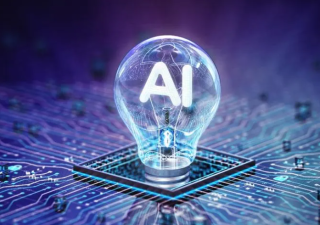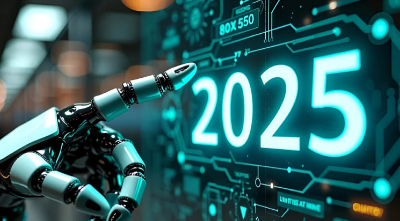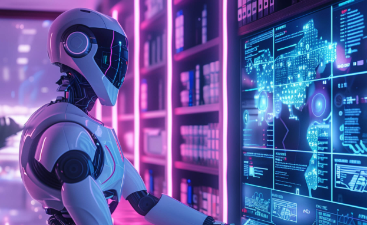As a strategic technology leading a new round of scientific and technological revolution and industrial transformation, artificial intelligence (AI) is reshaping the global competitive landscape with unprecedented breadth and depth, profoundly altering the global economic structure, human production and lifestyle, and even national governance models.The world today is undergoing a new round of technological revolution and industrial transformation. The intelligent economy, driven by artificial intelligence, is becoming a new engine for economic development. As a fundamental and strategic technology leading the future, artificial intelligence's strategic value, far exceeding that of any other single technology, has already manifested in practice and is profoundly changing human production and lifestyles. Humanity is gradually entering an era of intelligence, with artificial intelligence constantly evolving, intelligent driving iterating, intelligent robots making breakthroughs, and intelligent manufacturing continuously improving. Globally, artificial intelligence is showing new trends of rapid technological evolution, concentrated emergence of capabilities, widespread application, and increasingly fierce competition.
AI technology is rapidly evolving, ushering in a critical period of opportunity for innovative breakthroughs and industrial transformation.
Humanity is gradually entering the era of intelligence, with the continuous advancement of AI, iterative advancements in intelligent driving, breakthroughs in intelligent robotics, and continuous improvements in intelligent manufacturing. Global AI is experiencing new trends: rapid technological evolution, the emergence of concentrated capabilities, widespread application, and increasingly fierce competition.
AI technology is evolving towards a "new paradigm." AI technology is entering a period of rapid iteration, with continuous breakthroughs in intelligent computing chips, algorithm architectures, and computing power architectures. AI chips are leading the comprehensive evolution of global technological innovation. Large-model algorithm architectures are evolving from a single type to a diverse range of innovations. Since the rise of large models, model developers have been exploring architectural convergence and innovation, and innovative architectures beyond the Transformer architecture have emerged in large numbers. AI computing power is shifting from the cloud to the edge. The demands for real-time performance, privacy, and cost control in AI applications are driving the need for lightweight and scenario-based models, accelerating the development of an integrated "cloud-edge-device" computing architecture. This collaborative model, focusing on large-scale pre-training on the cloud, lightweight model inference on the edge, and local computing and privacy protection on the device, is constantly innovating and optimizing the computing architecture.

Deeply promoting "AI+" to create new momentum for high-quality development
The wave of AI has arrived, and the future is here. The rapid spread of AI technological innovation is beyond imagination, and its impact on social employment structures, production methods, and the economic landscape has far exceeded expectations. Continuously advancing the "AI+" initiative, deepening application scenarios, empowering countless industries, and driving intelligent transformation in the economy and society is a major opportunity bestowed upon us by the times and an essential path to accelerating the creation of new advantages and new momentum for my country's development.
AI engines are driving new industrialization. Manufacturing is a core area for the practical application of AI technology. AI is driving the manufacturing industry's transformation from single-point applications to intelligent upgrades across the entire process and entire industry chain, becoming a key driver for the manufacturing industry's advancement into the middle and high end of the global value chain. Empowering the entire manufacturing process with intelligent capabilities. During the R&D and design phases, applications such as intelligent prototyping and intelligent process design should be applied to shorten product development cycles and improve design efficiency. During the pilot and verification phase, intelligent virtual pilot testing, intelligent simulation, and intelligent verification of new processes should be promoted to enhance the efficiency and intelligence of the testing process. During the manufacturing phase, the application of technologies such as intelligent production scheduling, quality control, predictive maintenance, and intelligent safety monitoring should be strengthened to improve production efficiency, product quality, and safety. During the marketing and service phase, intelligent customer service and 3D product models should be promoted to enhance after-sales efficiency and user experience. During the operations and management phase, intelligent supply chain management, intelligent operational data insights, and knowledge management should be utilized to reduce operating costs and strengthen intelligent decision-making.
Future Trend: Embracing an AI-Driven Innovation Future
- Technology Convergence: The integration of AI with other emerging technologies (such as quantum computing, biotechnology, and new materials) has the potential to create new innovation opportunities and drive breakthroughs.
- Evolving Regulatory Environment: As AI technology develops and is applied, the regulatory environment is also evolving. Companies need to closely monitor regulatory changes and ensure compliance.
- Talent and Skills Development: As the role of AI in innovation grows, the demand for talent with AI skills will also increase. Companies need to invest in talent development and build a strong AI talent pool.
- Ethical and safety considerations: As the role of AI in innovation grows, ethical and safety considerations will become even more important. Companies need to ensure that AI systems are safe, fair, and transparent.








